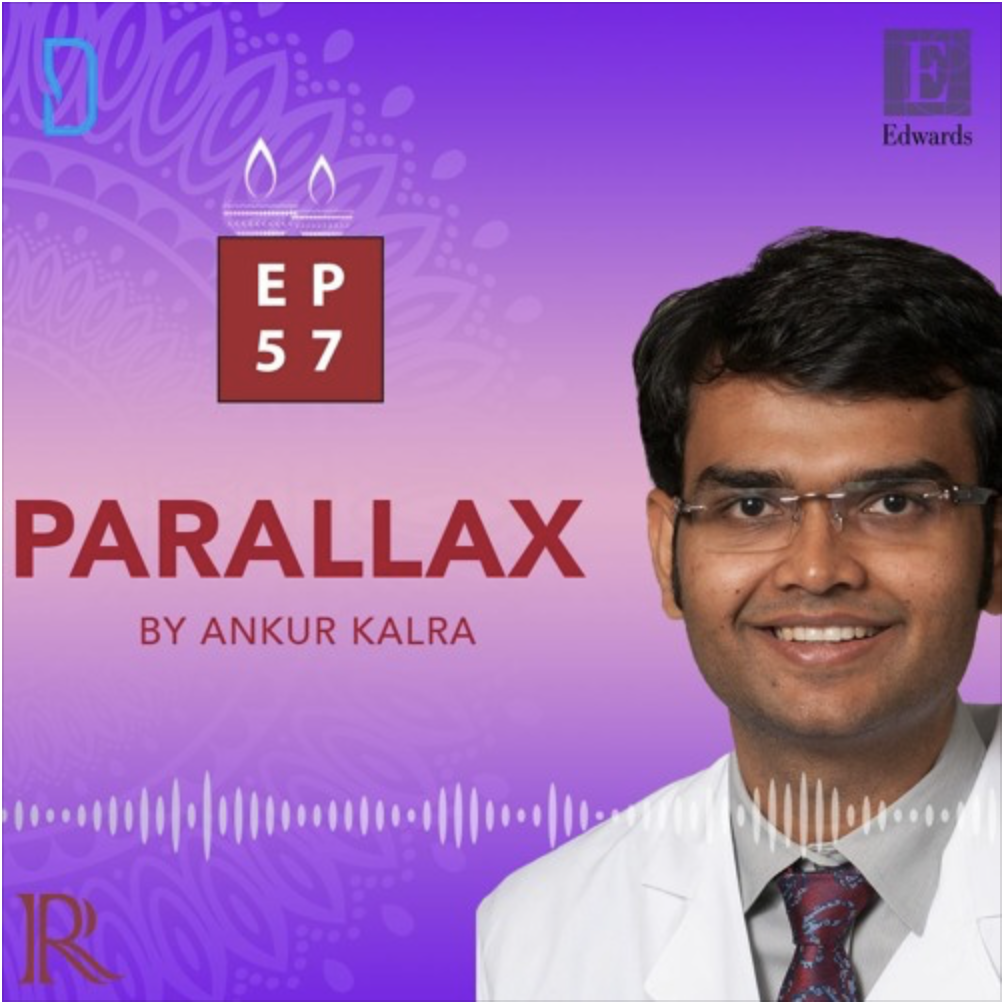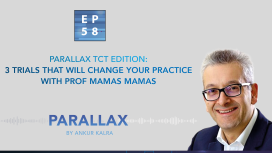
Dr. Pandey, a recipient of multiple awards, thinks about himself as a person driven by curiosity rather than passion. He believes that his interest in solving problems helped him to navigate successes and failures as an early-career researcher.
In celebration of Diwali, Dr. Ankur Kalra sat down with Dr. Ambarish Pandey, Assistant Professor at The University of Texas Southwestern Medical School, to talk about his career path and the questions that shaped his decision-making over the years.
In this candid and insightful interview, Ambarish talks about his training in India and the factors that contributed to his decision to continue his work in the US. He shares how preparing for a journal club led him to studying novel epiphenomenon in large data sets, as well as the practical aspects of applying for funding and developing questions.
What is the meaning of success and failure in academic medicine? What are the questions that guide Dr. Pandey? What does he consider key for his success in academic career? What is his message for our listeners?
Questions and comments can be sent to “podcast@radcliffe-group.com” and may be answered by Ankur in the next episode. Guest @ambarish4786, hosted by @AnkurKalraMD. Produced by @RadcliffeCARDIO.

Brought to you by Edwards: www.edwardstavr.com




What is the Global Cardiology University project? How does Dr Anavekar encourage trainees to re-examine their role in patient care? What is his advice to our listeners?

As Dr Kalra asks Dr Rao about the ways in which early career faculty members can get involved with the organization at a state level. Dr Rao shares his insider tips and highlights key events where individuals can further their participation.
How can you get involved with your local ACC chapter? How can you improve your leadership skills? What is Dr Rao’s advice for our listeners?

He explains how the complexity of nutrition and the compounds generated by the gut microbiome can impact our health. We learn more about three compounds produced by our gut microbiome that have a strong connection with heart disease.
Through this conversation, Dr Vuyisich invites us to reframe our approach to nutrition and prevention as a question of food education and data-driven science.


This episode features a vascular neurologist and an interventional cardiologist who will discuss the relationship between their two fields of medicine.

In this rich and insightful discussion, Dr Kittleson talks about the origins of famous #kittlesonrules, a collection of tips for doctors shared on Twitter, and her thoughts on mentorship. We learn more about Mastering the Art of Patient Care. Dr Kalra and Dr Kittleson discuss strategies for managing difficult situations in patient care.

What do you need to know about hospital investigations? What is the difference between OPPE and FPPE? How can you get educated on hospital bylaws and processes?


Parallax’s guest this week is Dr Eric David Adler, Medical director of heart transplant and mechanical circulatory support at UC San Diego Health.

How did Dr Gragossian receive her diagnosis? How does she feel about her new reality? What drives her? What is her message to our listeners?

Just after 9/11, Heval, the 18-year-old Syrian Kurdish refugee found a job as a dishwasher. At this point, he was the sole provider of his family. The pressure that comes from being poor did not leave him for many years. Today, he is firm believer in giving back to underserved communities by spreading awareness within the medical community. As he says, well-meaning people of privilege are sometimes afraid to act. What we need is more people to bridge the gap and find ways to help each other.

What drives Dr Nishtha Sodhi? What were the formative moments of Dr Sodhi’s career? What are the new frontiers of cardiology?






